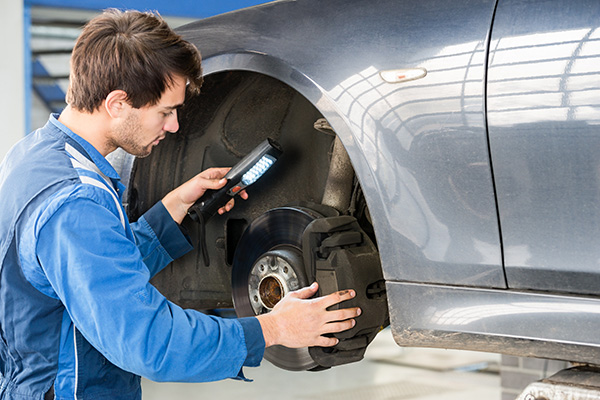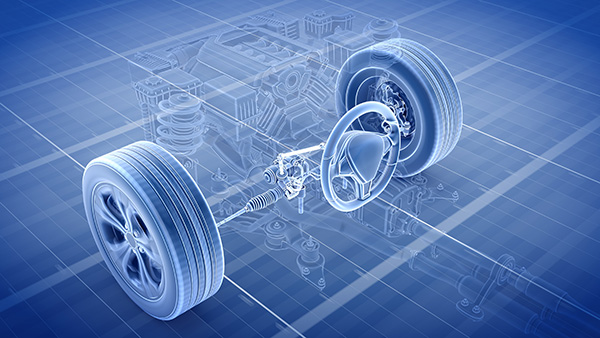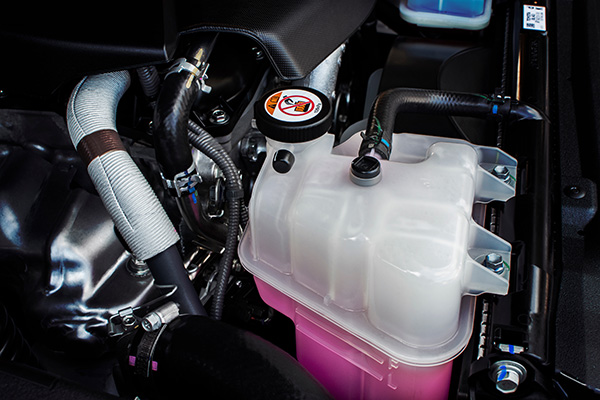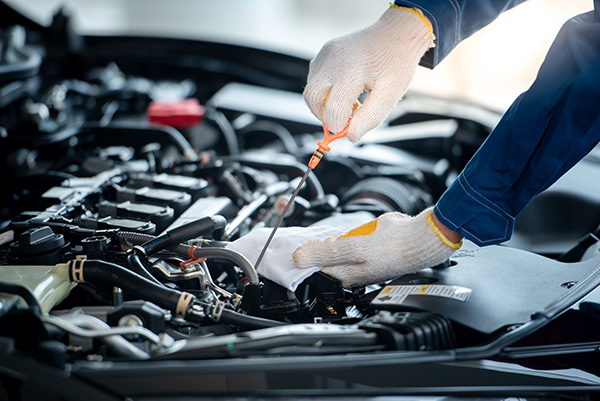Posted on 10/31/2024

Do you hear a high-pitched squeal that starts ringing out every time you press the brake pedal? It’s not just annoying—it’s concerning. Brake noise is something most drivers will experience at some point, but understanding why it happens and how to address it is key to keeping your vehicle in top shape. Learn what causes brakes to squeal and how to fix the issue before it becomes a bigger problem. Why Do Brakes Squeal? Brake squealing is more than just an irritating sound; it’s often a sign that something needs attention in your braking system. Several factors can contribute to the noise, ranging from minor issues to more severe ones. Here are some common causes of brake squeal: Worn Brake Pads The most frequent reason for brake squealing is worn-out brake pads. As pads wear down, the material thins and a metal wear indicator built into the pad contacts the rotor, causing a squealing sound. This is actually a des ... read more
Posted on 9/27/2024

Ever stepped into a brand-new car, gripped the steering wheel, and immediately noticed something felt off? Maybe the steering feels lighter or more responsive compared to your older vehicle. You're not imagining things—modern steering systems are vastly different from the ones in cars just a couple of decades ago. But why? What’s changed? Understanding the evolution of car steering systems can reveal why newer cars feel so different to drive and why manufacturers have made these changes in the first place. The Shift from Hydraulic to Electric Power Steering One of the most significant changes in modern cars is the widespread use of electric power steering (EPS). Traditionally, most vehicles used hydraulic power steering (HPS), which relied on a hydraulic system driven by the car’s engine to assist with turning the wheels. This system gave a heavier, more "connected" feel to the road, which many drivers preferred. You could actually fee ... read more
Posted on 8/30/2024

When the summer heat rolls in, and your car's engine starts to feel the strain, you might wonder: Is it okay to use water instead of antifreeze? After all, water is more accessible, and it seems like a quick fix. However, this seemingly simple swap can significantly affect your vehicle's cooling system and overall performance. We will explain whether using water instead of antifreeze during hot weather is safe. The Role of Antifreeze Antifreeze, or coolant, plays a crucial role in regulating your engine's temperature. It is designed to prevent the engine from overheating in the summer and freezing in the winter. But how does it do this? Antifreeze contains chemicals like ethylene glycol or propylene glycol, which have a higher boiling point and lower freezing point than water. This means that antifreeze can handle the extreme temperatures that your engine might face, ensuring that the engine runs smoothly and efficiently. Moreover, antifreeze contains co ... read more
Posted on 7/26/2024

Owning a car is a significant responsibility. While it's easy to enjoy the freedom and convenience it offers, it's equally important to keep up with regular maintenance to ensure your vehicle's longevity and safety. Proper maintenance saves you money in the long run and helps prevent unexpected breakdowns. Curious about what tasks are most crucial for your car's health? We have listed the seven essential car maintenance tasks every vehicle owner should know. 1. Regular Oil ChangesRegular oil changes are one of the most fundamental and critical maintenance tasks for your car. Engine oil lubricates all the moving parts within the engine, reducing friction and preventing overheating. Over time, oil breaks down and becomes less effective, which can lead to engine damage. Most experts recommend changing your oil every 3,000 to 5,000 miles, but always refer to your vehicle ... read more
Posted on 6/28/2024

When it comes to maintaining your vehicle, finding a trusted auto service provider is paramount. But what if you could drive away with exceptional service and the assurance of a rock-solid warranty? At Guthrie's Auto Service, we offer the Extended NAPA Peace of Mind® Warranty, designed to provide you with unparalleled peace of mind on the road. We will list the numerous benefits this warranty brings you. Nationwide Coverage for Unmatched Peace of Mind One of the standout features of the NAPA Peace of Mind® Warranty is its nationwide coverage. Honored at more than 14,000 locations across the United States, this warranty ensures that no matter where your travels take you, a NAPA AutoCare Center is always nearby to assist with any covered repairs. This extensive network is unmatched by any other automotive repair brand, offering you a level of security that's hard to beat. Comprehensive Coverage of Parts and Labor The ... read more